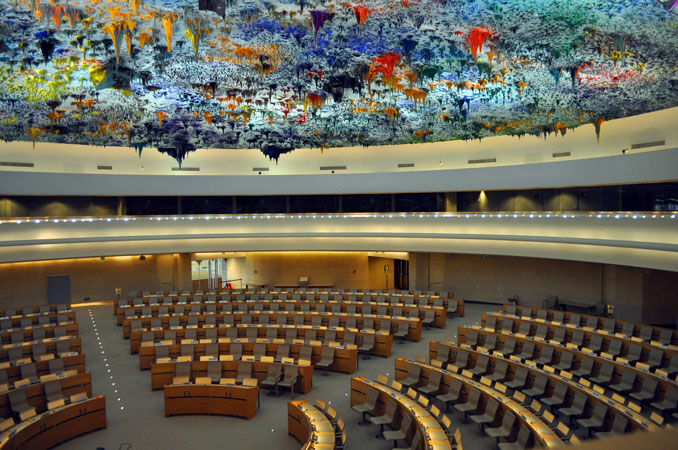Human Rights Council: Italy's diplomatic behaviour in 2022

This analysis focuses on Italy’s engagement at the Human Rights Council (HRC) in 2022, with particular attention to its diplomatic activity in negotiating and presenting resolutions.
In 2022, the Council held three regular sessions: the 49th session (28 February – 1 April), the 50th session (13 June – 8 July), and the 51st session (12 September – 7 October). During this period, Italy participated as an Observer State, without voting rights. Previously, Italy had been a member of the Council during the 2019–2021 term.
Over the course of the year, the HRC adopted a total of 97 resolutions, distributed as follows: 35 in the 49th session, 23 in the 50th, and 39 in the 51st. Of these, 64 were adopted by consensus (without a formal vote), and 33 required a majority vote.
Italy was directly involved in a significant number of resolutions adopted in 2022, through both direct sponsorship and co-sponsorship. In total, of the 97 resolutions adopted, Italy sponsored 31 and co-sponsored 34. The initiatives focused in particular on cultural rights, education, the rights of vulnerable groups, and various country-specific situations.
A substantial share of Italy’s diplomatic activity focused on supporting broadly agreed resolutions: about 67% of the resolutions sponsored or co-sponsored by Italy were adopted without a vote, while the remaining 33% required a majority decision by the Council.
In 2022 the HRC also adopted 32 Resolutions that Italy neither sponsored or co-sponsored, which addressed issues such as the rights of Palestinians, Israeli settlements in the occupied territories, climate change, the right to development, and the rights of indigenous peoples.
The attached table provides a detailed overview of Italy’s diplomatic activity at the HRC in 2022, and it is organized into three tables listing all resolutions adopted during the year’s three regular sessions:
- Resolutions sponsored by Italy;
- Resolutions co-sponsored by Italy;
- Resolutions not sponsored by Italy.
The categorization is based on official documentation of the Council’s proceedings, and each table includes resolution titles, session details, other sponsors, and the outcome of the voting process, if a vote occurred.

